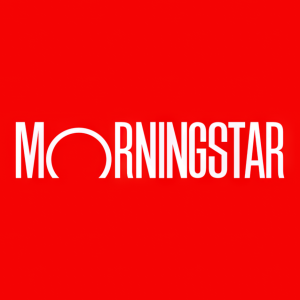Morningstar Report Finds Contributions to Target-Date Strategies Rebounded in 2021 Led by Record Growth of Collective Investment Trusts
Morningstar, Inc. (Nasdaq: MORN) released its annual Target-Date Strategy Landscape Report, revealing that total assets in target-date strategies reached a record $3.27 trillion at the end of 2021, a nearly 20% increase from the prior year. Notably, net contributions surged by $170 billion, with collective investment trusts (CITs) accounting for 86% of inflows. The report highlights the importance of fees in investor decisions, showing that lower-cost funds attracted $59 billion in new contributions, while expensive options experienced outflows exceeding $38 billion.
- Total assets in target-date strategies grew to a record $3.27 trillion at the end of 2021.
- Net contributions to target-date strategies surged by $170 billion in 2021.
- Collective investment trusts accounted for 86% of target-date strategy net inflows.
- The cheapest quintile of target-date share classes attracted $59 billion in 2021.
- Outflows from more expensive target-date share classes exceeded $38 billion.
Insights
Analyzing...
CHICAGO, March 23, 2022 /PRNewswire/ -- Morningstar, Inc. (Nasdaq: MORN), a leading provider of independent investment research, today published its annual Target-Date Strategy Landscape Report, which found that total assets in target-date strategies grew to a record
"Assets in target-date strategies reached a record high in 2021 as investors poured net contributions of
The 2022 report examines the growing trend of collective investment trusts (CITs) as plan sponsors' preferred target-date vehicle, how fees continue to be a key driver in target-date selection, and primary differences between "to" versus "through" glide paths.
The Target-Date Strategy Landscape Report is available here. Key findings from the report include:
- CITs are on pace to overtake mutual funds as the most popular target-date vehicle in the coming years. In 2021, net contribution to CITs outpaced mutual funds
$146 billion to$24 billion and accounted for86% of target-date strategy net inflows. These vehicles now make up45% of total target-date strategy assets, up from32% five years ago. - Fees continue to influence target-date fund flows. The cheapest quintile of target-date share classes amassed
$59 billion in 2021, up from$41 billion in 2020. Collectively, the three more-expensive quintiles had outflows of more than$38 billion . - Vanguard Target Retirement collected the most net new money after slipping from the top spot last year for the first time since 2008. It accumulated more than
$55 billion of net inflows in 2021, with Fidelity Freedom Index collecting the second most with approximately$45 billion . Overall, the industry remains top heavy as the largest five providers control roughly79% of target-date market share. - Target-date managers have become more comfortable with higher equity stakes over the last decade. In 2021, portfolios 20 years to retirement had a median equity weighting of
82% , roughly one-fifth larger than ten years ago. Firms' preference for "through" retirement glide paths over "to" retirement is one reason for the shift toward higher equity weightings, as "through" retirement glide paths' gradual de-risking after the target-retirement date allows for more equity risk during savers' working years.
Morningstar today published a Fund Spy article on Morningstar.com that reviews the latest ratings for target-date fund series that Morningstar covers, available here.
Morningstar Target-Date Fund Series Reports
Morningstar Target-Date Fund Series Reports (the Reports) are designed to help individual investors, financial advisors, consultants, plan sponsors, and other interested fiduciaries make informed decisions when selecting a series of target-date funds. The methodology for the Reports is available here.
Morningstar Target-Date Fund Series Reports and Morningstar's Analyst Ratings for target-date series are available in Morningstar DirectSM, the company's global investment analysis and reporting platform for financial professionals, and in Morningstar OfficeSM, Morningstar® Advisor WorkstationSM, and Morningstar® Analyst Research CenterSM, the company's investment planning and research platforms for financial advisors.
About Morningstar, Inc.
Morningstar, Inc. is a leading provider of independent investment research in North America, Europe, Australia, and Asia. The Company offers an extensive line of products and services for individual investors, financial advisors, asset managers and owners, retirement plan providers and sponsors, and institutional investors in the debt and private capital markets. Morningstar provides data and research insights on a wide range of investment offerings, including managed investment products, publicly listed companies, private capital markets, debt securities, and real-time global market data. Morningstar also offers investment management services through its investment advisory subsidiaries, with approximately
Morningstar's Manager Research Group consists of various wholly owned subsidiaries of Morningstar, Inc. including, but not limited to, Morningstar Research Services LLC. Morningstar's Manager Research Group produces various ratings and assessments including the Morningstar Analyst Rating and the Morningstar Quantitative Rating. The Morningstar Analyst Rating is derived from a qualitative assessment process performed by a manager research analyst, whereas the Morningstar Quantitative Rating uses a machine-learning model based on the decision-making processes of Morningstar's analysts, their past ratings decisions, and the data used to support those decisions. In both cases, the ratings are forward-looking assessments and include assumptions of future events, which may or may not occur or may differ significantly from what was assumed. The Morningstar Analyst Ratings and Morningstar Quantitative Ratings are statements of opinions, subject to change, are not to be considered as guarantees, and should not be used as the sole basis for investment decisions. This press release is for informational purposes only; references to securities should not be considered an offer or solicitation to buy or sell the securities.
©2022 Morningstar, Inc. All Rights Reserved.
MORN-R
Morningstar Media Contact:
Erin Parro, +1 312-244-8981 or newsroom@morningstar.com
![]() View original content to download multimedia:https://www.prnewswire.com/news-releases/morningstar-report-finds-contributions-to-target-date-strategies-rebounded-in-2021-led-by-record-growth-of-collective-investment-trusts-301508954.html
View original content to download multimedia:https://www.prnewswire.com/news-releases/morningstar-report-finds-contributions-to-target-date-strategies-rebounded-in-2021-led-by-record-growth-of-collective-investment-trusts-301508954.html
SOURCE Morningstar, Inc.








